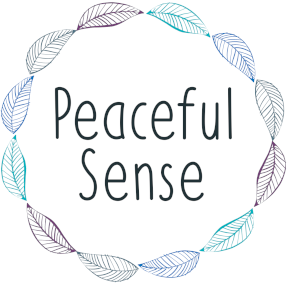We would all like emotional healing to feel like a spa day with essential oils, gentle music, and a nice little “Aha!” moment where everything suddenly makes sense.
But let’s be honest. It often looks like crying in your car alone, feeling numb, going over thoughts about your past, and wondering if you’re ever going to feel like yourself again.
So how long does healing take?
The short answer: It depends.
The long answer: It’s a winding, messy, layered process that doesn’t follow a timeline, but it does happen.
Healing Isn’t Linear, It’s Cyclical
You don’t wake up one day “healed.” You wake up and realize you didn’t cry about them today. Or you didn’t flinch when your thoughts turn to it. Or you finally blocked their number.
It is full of contradictions:
One day you feel strong. The next, hollow.
One moment you forgive yourself and others. The next, you're angry and sad all over again.
Some wounds resurface years later, not because you failed, but because you're ready to process them deeper.
Progress doesn’t always feel like progress. But every moment you choose not to reopen the same wound, that’s growth.
The Stages of Healing (They Don’t Come in Order)
Here are a few common phases. You might experience all of them, or just a few, and not necessarily in this order:
💔 Shock & Survival
The “just keep breathing” phase. You might be numb, emotionally exhausted, or feel like you're in a fog. That’s your brain protecting you. Survival is a valid beginning.
😤 Anger & Clarity
You start to feel everything you were too tired to feel at first. This phase is messy but necessary. You see things more clearly, and anger can be a signal that you’re reclaiming your self-worth.
🫶 Acceptance & Sadness
You realize what happened, what you lost, what won’t come back. You might cry more now than you did at the beginning. That’s okay. You’re feeling the full truth, which means you’re getting closer to peace.
🌱 Rebuilding
You start making choices for you again. You set boundaries. You say no. You explore new interests or revisit old ones. You start trusting yourself again.
✨ Expansion
One day, you wake up and notice that healing has become part of you. You’re wiser, softer, stronger. Not because you were “fixed,” but because you carried yourself through it.
Personal healing can be a common emotional response to change, loss, or shock and is also reflected in the Kubler-Ross Change Curve, in which the stages we experience don't follow a strict sequence, and they are not linear.
There’s No Universal Healing Timeline
You may heal in six months. Someone else might take two years. And that doesn’t mean you’re weak or doing it wrong.
Grief, trauma, betrayal, heartbreak - these things rewrite your nervous system, your habits, your trust. It’s not about “getting over it.” It’s about learning to live in the world again without the weight crushing you.
Some things take:
A few weeks of crying.
A few months of therapy.
A few years of rebuilding trust in yourself and in others.
A lifetime of tending gently to your heart when old wounds whisper again.
But it doesn’t stay this hard forever.
You get stronger.
You get clearer.
You get better at catching yourself when you slip.
Healing Happens Quietly
Choosing not to respond how you once used to.
Making dinner for yourself when you’d rather give up.
Going to therapy even when it’s uncomfortable.
Laughing and realizing it wasn’t forced.
Feeling peace during something that used to trigger you.
You won’t always get a gold star for these things, but they matter. These are the micro-miracles of healing.
You Won’t Be the Same, and That’s the Point
You won’t go back to who you were before the pain. But that version of you isn’t the goal anymore.
Healing doesn’t make you who you used to be. It introduces you to someone new:
Someone wiser.
Someone with boundaries.
Someone who knows what peace feels like and won’t trade it for chaos again.
You don’t become perfect, you become real.
It isn’t a Finish Line, It’s a Lifestyle
You don’t need to rush. You don’t need to fake being “okay.” You just need to keep showing up for yourself, even on the days you stumble.
Getting better takes the time it takes. But the good news?
You’re not behind.
You’re not broken.
You’re just becoming someone stronger and softer, all at once.
And that’s worth waiting for.
